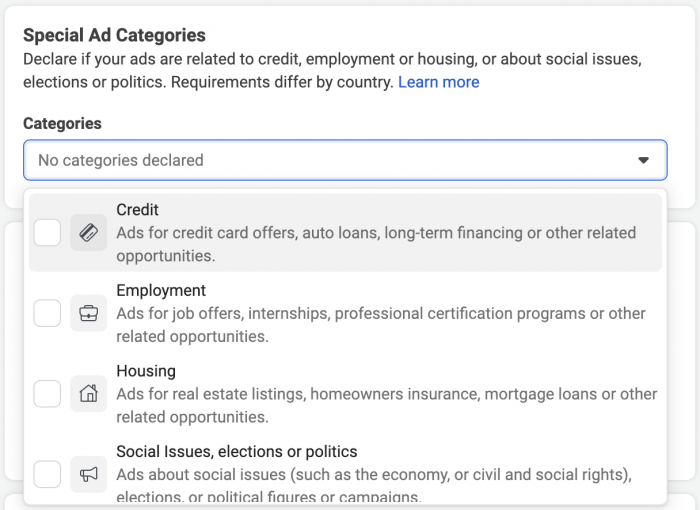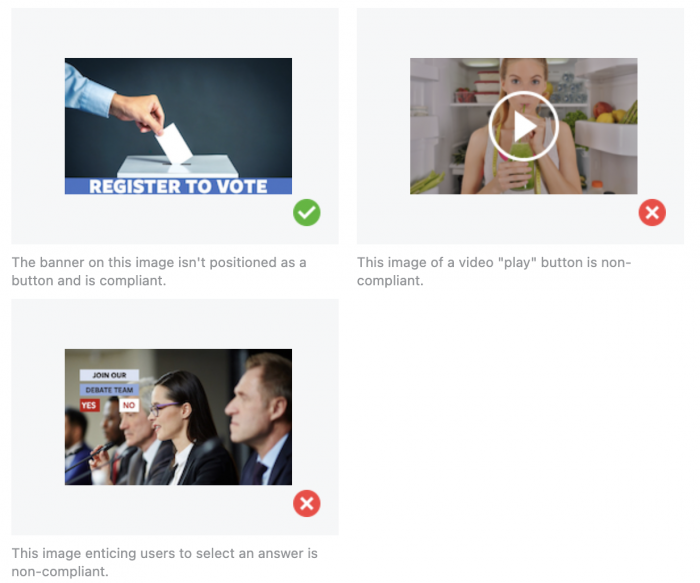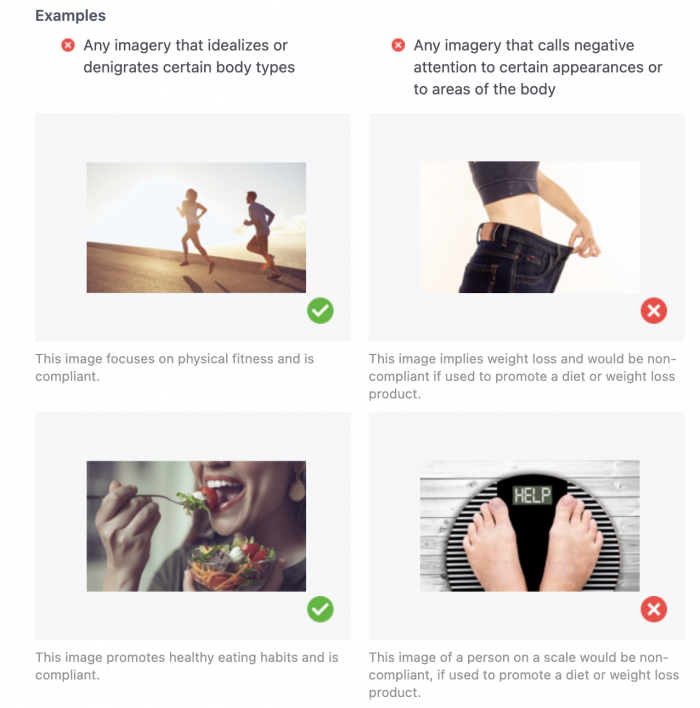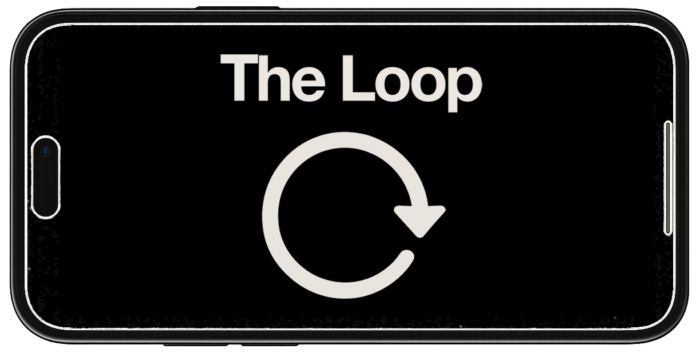If you’re an advertiser, it’s critically important that you know and comply with Facebook’s advertising policies. Ignorance of these rules is negligence.
Fail to understand the rules and how to comply with them, and you should expect to get ads rejected. Do it often and plan to get your ad account, page, or Business Manager disabled. Maybe temporarily, maybe forever.
We don’t want that.
So, do yourself a favor. Read Facebook’s ad policies. There’s a lot to digest. We’ll cover the highlights here today.
Some of it is common sense. Don’t break the law. Don’t lie and deceive. Don’t discriminate. Don’t promote dangerous products. If you are a naturally ethical person, this stuff will be easy.
But, some of the rules are less obvious. This is where it’s easy to get tripped up. If you aren’t careful, you’ll break rules without realizing it.
There are a lot of rules to know. Get to know them. But here are a few of the most common rules that get people into trouble…
Special Ad Categories
Some industries and ad topics are allowed but restricted. You can run ads for politics, elections, social issues, housing, credit, and employment, but special rules will apply.
When you create such a campaign, you’ll need to declare that your ads are related to a special ad category.

When you do this, Facebook will automatically make adjustments to things that you can and can’t do, most commonly impacting targeting. While this may seem like an inconvenience, it’s Facebook saving you from accidentally breaking rules.
If you intentionally skip the Special Ad Category declaration so that your targeting, for example, won’t be restricted, expect to get your ads flagged. And given the sensitive nature of such ads, consider yourself lucky if the worst thing that happens is getting your ads rejected.
No Personal Attributes
Be careful about your ad copy. How you word things matters. You can’t suggest that you know very personal things about people.
Your ad can’t suggest that you know someone’s race, religion, age, sexual orientation, gender, disability, financial status, medical condition, voting status, or criminal record. It’s not that your ad can’t include information about these attributes, it simply can’t suggest that you know or believe that the targeted user falls into certain groups.
For example, you can’t suggest that a targeted user is in financial trouble, but you can promote a financial service that helps people manage debt.

You can’t suggest a medication will help the targeted user’s medical condition, but you can promote a medication and mention its benefits.

Facebook provides several examples of what you can and can’t say related to personal attributes here.
Non-Functional Landing Pages
Your ad may be fine. Entirely within the rules. But that ad may get rejected if you direct people to a non-functional landing page.
Make sure to test the page before you publish the ad. It needs to work. It can’t be a direct link to an image or PDF or start an automatic download. The ad’s link can’t go to a private or closed Facebook group.
Another landing page issue is related to content. Does your landing page follow through on what the ad promised? Sometimes, this may be less obvious to you, but look at it through the eyes of the user.
Nonexistent Functionality
Your ad imagery can’t include buttons or checkboxes that don’t actually do anything. An example is a thumbnail image with a play button.

This practice isn’t particularly uncommon. It’s meant to encourage engagement. But, it’s deceptive, and it will lead to ad rejections or worse.
Health
Ads promoting healthcare products can be problematic, particularly related to weight loss. You can’t use before-and-after photos, but ads also can’t promote negative self-perception related to weight.

You can promote healthy eating, but you need to be careful about framing body image.
Multilevel Marketing (MLM)
I’m sure we all have Facebook friends who promote products in MLM. They often mean well, but it’s a problematic industry for reasons that we can’t really cover here.
While you may be able to get away with this stuff organically, you won’t be able to promote these products with Facebook ads.
Misleading Claims
Lump this under the category of ethics. If you’re an ethical marketer, you won’t have any issues here.
But, be careful with your sales language. Some of that sales language is widely accepted as being necessary to encourage the sale. But, you can quickly find yourself crossing over into unrealistic guarantees and misleading claims regarding effectiveness.
Think twice about copy that promotes or suggests a guarantee that if you buy this product, “X” will happen. We see this a lot in get-rich-quick schemes. It applies to medication and the health industry as well.
Facebook Brand Assets
Facebook is really sensitive about how you use its brand assets. Don’t imply endorsement made by Facebook or Instagram. You may want to avoid using Meta family logos at all.
Something I’ve been stung by that isn’t particularly obvious is the use of screenshots of the Facebook interface. Those screenshots must accurately depict the current interface. So, if you ever want to show how something previously worked (like I have), that will be an issue in videos and images.
No Excuses
There’s obviously more, but this covers some of the more common issues advertisers run into.
Look, everyone gets ads rejected at some point. Sometimes ads are rejected by mistake. There are automated filters that “review” ads first, and those filters can flag things incorrectly. You may need to appeal for a human review.
But even then, you may miss a less obvious rule. You may do everything ethically but still trigger something that Facebook is sensitive about. More often than not, this isn’t a big deal. Facebook will reject the ad, you’ll fix it, and you won’t make that mistake again.
But that’s the key. Get to know the rules. Learn from the rejections you do have. Don’t try to bend or push the rules. Be as ethical as you can possibly be.
If you do, you’ll have fewer delays and a better reputation with Facebook. That reputation can give you the benefit of the doubt later.
Breaking the rules can come at a huge cost. You may lose access to ad accounts, pages, and Business Managers, temporarily or permanently. It can lead to the disruption of your business or the business of your clients.
These are things you absolutely cannot afford.
Watch Video
Your Turn
What rules have tripped you up in the past?
Let me know in the comments below!







